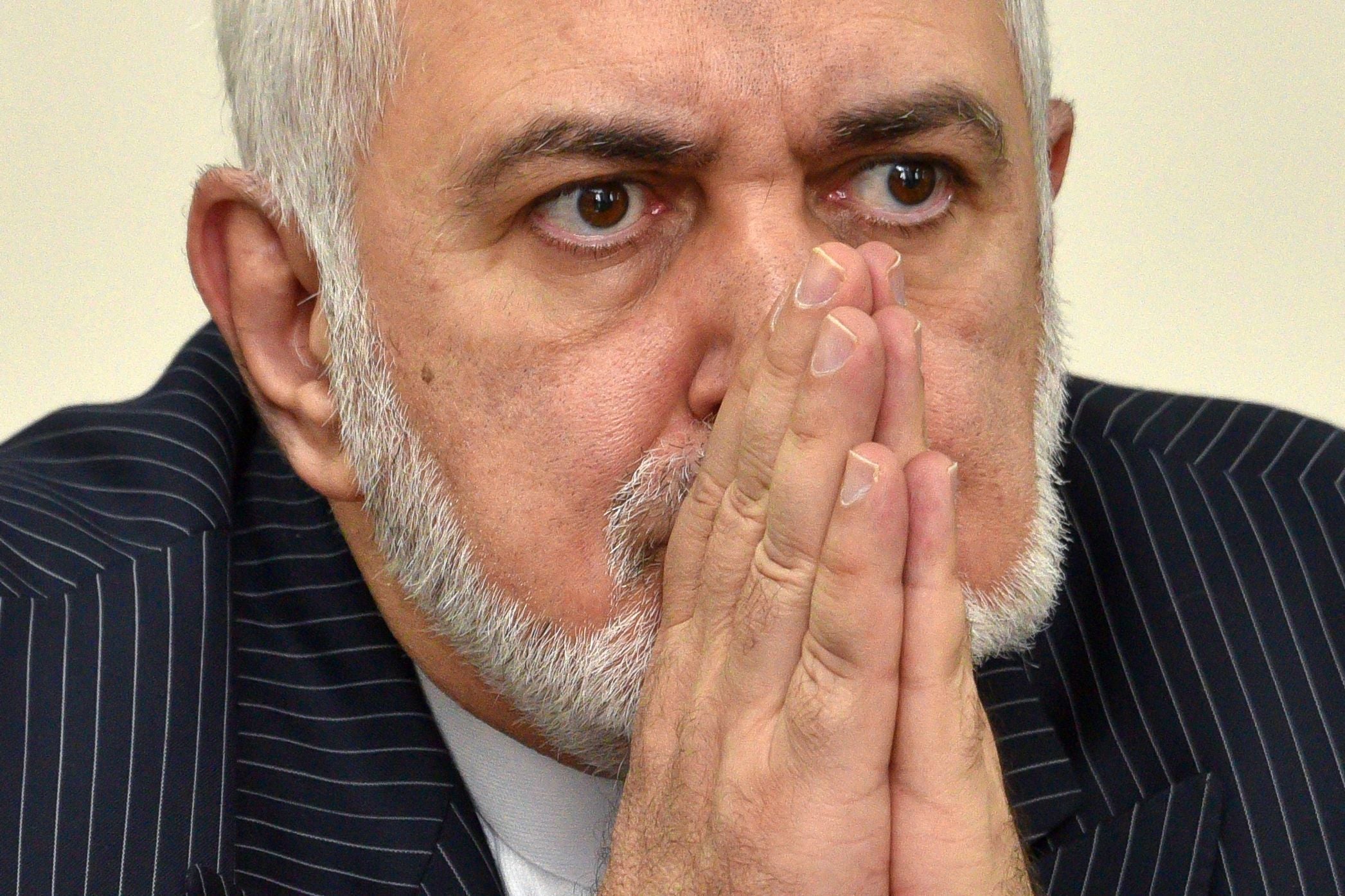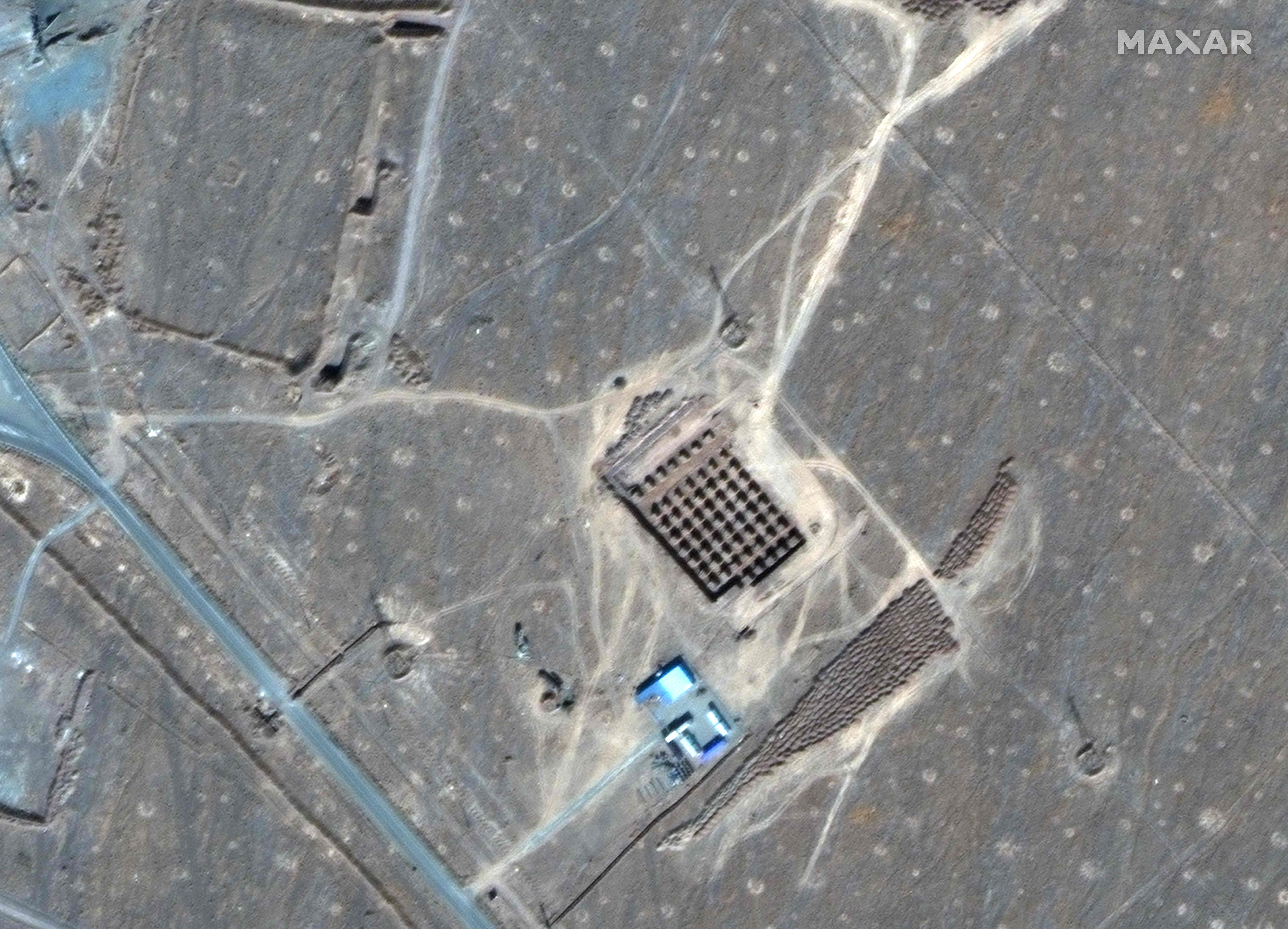Iran and world powers hurtle toward fresh confrontation over nuclear inspections despite talks offer
Despite the offer of fresh talks, fears are growing over an impending deadline on inspections

Iran demanded the United States remove economic sanctions before it would commit to any talks about reviving the nuclear deal abandoned by the previous Washington administration.
On Thursday, Joe Biden’s administration announced its first substantial offer to Iran since it took office a month ago, an offer to join European-hosted talks with Iran about the future of the nuclear deal, called the Joint Comprehensive Plan of Action (JCPOA).
But alarm is setting in ahead of a crucial deadline early next week that could mean a dramatic escalation in the crisis over Iran’s nuclear programme. Diplomats are scrambling to avert another spike in tensions, or a potential collapse of the Iran nuclear deal that they’ve vowed to salvage.
Washington announced it would accept multilateral talks with Iran hosted by the European Union. It also rescinded an insistence by the administration of Donald Trump, but rejected by almost all other nations, that wide-ranging United Nations sanctions be reimposed. Additionally, Washington eased travel restrictions for Iranian officials attached to the United Nations in New York, moves welcomed by Tehran.
A senior US official told reporters at a briefing that diplomats were exploring the possibility of an “informal” meeting that included all the original signatories of the JCPOA.
“The goal of coming together would be to sit down and to see – start what could be a prolonged path of trying to get back to a situation where both the US and Iran were back into compliance,” said the official.
But Iran has yet to accept the offer to meet, and worries persist that the US measures will not be enough to stave off what many fear will be a major impending move by Iran.
“Gestures are fine,” Iran’s foreign minister spokesman Saeed Khatibzadeh wrote in a tweet on Friday. “LIFT sanctions. We WILL respond.”
He added: “Here is the key sequence,” listing “commit”, “act” and “meet”.
The Trump administration withdrew from the nuclear deal, called the Joint Comprehensive Plan of Action (JCPOA), in 2018, and imposed harsh sanctions on Iran, insisting it would seek a better agreement. Instead, after abiding by the terms of the JCPOA for a year, Iran began to steadily downgrade its compliance by upping its enriched uranium output and stockpiles.
On 23 February, Iran is scheduled to announce a withdrawal from adherence to intrusive inspections that were part of the JCPOA.
The legally mandated deadline to depart from the complying with the Additional Protocols of the nuclear Non-proliferation Treaty to which Tehran is a signatory was ordained by Iran’s parliament in reaction to the assassination of nuclear scientist Mohsen Fakhrizadeh last year.
“We have heard many nice words and promises which in practice have been broken and opposite actions have been taken,” Iran’s supreme leader Ali Khamenei, said in a speech on Wednesday. “Words and promises are no good. This time we want only action from the other side, and we will also act.”
The deadline is seen as crucial by all sides. Both US and European officials have urged Iran to continue abiding by the additional protocol, and in a joint statement Thursday called it “dangerous” to limit International Atomic Energy Agency (IAEA) inspectors’ access.
“It would be a dangerous step if they were further eroding not just the JCPOA but sort of the architecture of the nonproliferation arrangements by diminishing the ability of the IAEA to know what they’re doing,” said the US official.
IAEA director-general Rafael Grossi is scheduled to arrive in Tehran on Saturday to discuss the matter with Iranians. But Iranians patience and trust has frayed.

“There is disappointment over what Iranians experienced during a period that none of [the others] complied with the deal fully and Iran was the only country to comply with the deal,” said Hossein Mousavian, a former Iranian diplomat, speaking during an online forum hosted by the Royal United Services Institute on Wednesday.
Failing to abide by the additional protocols does not mean Iran is leaving the treaty that bars nuclear weapons development. But it would bar certain types of intrusive or snap inspections as well as access to all dimensions of its nuclear programme, potentially further damaging the ability for other countries to ascertain its atomic technology capabilities.
Keeping eyes on the programme has become even more crucial in recent months. After breaching limits set by the JCPOA, the theoretical timeline for Iran to make a lunge for a nuclear bomb has been reduced from a year to a few months, even as Iran says it does not seek an atomic weapon.
Former officials and analysts say Mr Biden could potentially stave off the crisis by simply stating that the US wants to return to the nuclear deal, or possibly rescinding the executive order that Mr Trump signed to remove Washington from the JCPOA. He will have a chance to speak to world leaders Friday at the Munich Security Forum, which is being held online this week.
“The Biden administration has been in the process of consulting close allies and regional partners, and there’s this idea that the US doesn’t want to move too quickly,” said Ellie Geranmayeh, of the European Council on Foreign Relations. “They don’t want to create the impression that they’re negotiating on Iranian timelines.”
Meanwhile, US officials querying both JCPOA signatories, opponents of the deal such as Israel, Saudi Arabia, and members of Congress, and potential intermediaries. They are seeking to explore steps for returning to the nuclear deal and possibly for launching follow-on talks to address lingering concerns about both the JCPOA and other matters of worry about Iran, including its missile programme and support for armed groups throughout the Middle East.
The latest movement comes after an intense process of quiet diplomacy between several countries. According to diplomatic readouts, Rob Malley, the US Iran envoy who is expected to attend the talks hosted by the EU, has spoken with both China and Qatar on Iran, though the State Department has yet to confirm the talks. Oman, another country that has strong relations with Iran, is also likely speaking with both Washington and Tehran. A number of countries, including Qatar and Turkey, have come out strongly in favour of restoring the JCPOA.
“The Qataris are doing it very publicly, while the Omanis are doing it in the background,” said Andreas Krieg, a Gulf specialist at King’s College and a former adviser to the Qatari armed forces. “It’s about showing the new administration that they’re willing to help and they’re willing to play this mediation role.”
Before it re-engages with Iran, the Biden administration is likely seeking to stave off or at least dampen any potential opposition to a renewed JCPOA. The president spoke for an hour with the Israeli prime minister, Benjamin Netanyahu, on Wednesday in a discussion that included Iran, according to the Israeli readout.
Germany, France, and the United Kingdom sought to uphold the JCPOA during the Trump years but are now seemingly content to let Washington drive policy on Iran. “The European capitals are a bit sidelined,” said one former European official who until recently worked closely on Iran. “The US has its own Iran team capable of reaching out through Qatar. Both Iranians and US negotiators know each other. I don’t see a huge rule for the EU. Ultimately it’s going to take the US and Iran to make moves.”
In addition to cutting back on inspections, Iran has warned that in the coming weeks and months it would further expand its nuclear activities if the US and other signatories to the JCPOA do not come back into compliance with the deal.
Those breaches include operating more advanced devices for more efficiently and quickly refining the fissile material that could possibly be used in creating nuclear weapons; inaugurating a factory to produce metallic uranium that could be used to create a bomb core; and launching or relaunching heavy water plants that could be used to produce plutonium.
In June, Iranian presidential elections could bring a new administration in Tehran less eager for any deal with the US.
“We have started the campaign season in Iran, and it’s very popular to be anti-American,” said Kayhan Barzegar, a Tehran-based political scientist, during an online forum on Wednesday.
European officials are urging Iranians to be cautious and exercise patience as Biden assembles its team and devises its strategy, which will possibly end up proposing a series of steps aimed at building confidence ahead of a full return to the deal and possible follow-on talks. After four years of impulsive actions on the part of the Trump administration,
“It wouldn’t be surprising if the IAEA director-general is carrying messages from Europe and the US,” said the former European diplomat. “What those messages will be and how effective they are is a huge open question. A staggered approach to returning to the JCPOA is more likely. But Iranians should be patient. We’re in the time of real negotiations rather than executive actions.”
Join our commenting forum
Join thought-provoking conversations, follow other Independent readers and see their replies
Comments


Bookmark popover
Removed from bookmarks